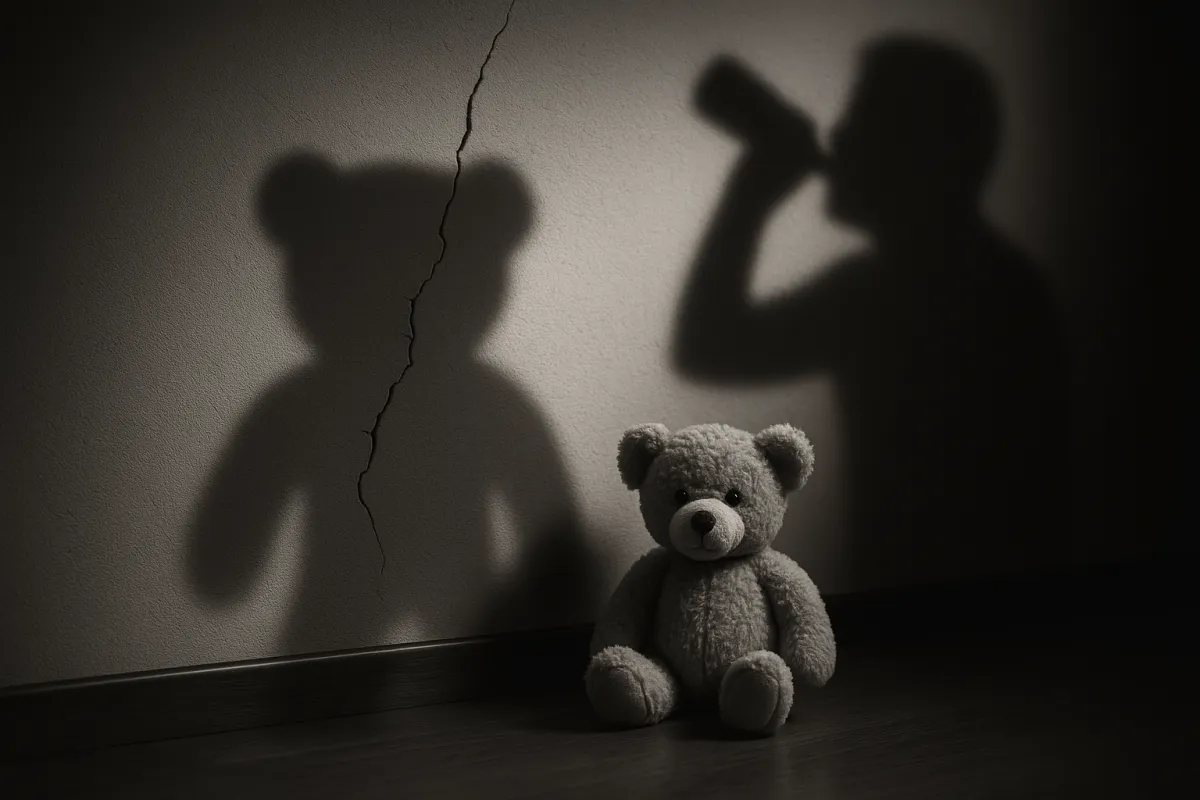
The Hidden Link Between Childhood Trauma and Addiction
The Hidden Link Between Childhood Trauma and Addiction By Sean Mcbride

Trauma and Addiction
Addiction rarely appears out of nowhere. Behind every struggle with alcohol, drugs, or compulsive behaviors lies a story. and often, that story begins long before the first drink or pill. For many, the roots of addiction trace back to unresolved childhood trauma. Events that happen to us in the early years of our lives have lasting impact more than we may realize. Understanding this connection is not about blame. It’s about finding the missing piece of the recovery puzzle, so healing can be complete. In these words, we will explore the link from our past selves and how they can resonate to the actions of our present selves in a positive way for the betterment of our future selves.
What Do We Mean by “Trauma”?
When people hear “trauma,” they often picture catastrophic events. Abuse, neglect, violence. While these experiences are indeed traumatic, trauma can also come from subtle but chronic experiences in childhood, such as:
Emotional neglect (feeling unseen, unheard, or unloved)
Growing up in a household with addiction or mental illness
Bullying or ongoing criticism
Unstable family environments (divorce, frequent moves, financial chaos)
The common thread is this: trauma disrupts a child’s sense of safety, stability, and self-worth. Without healing, those wounds often follow us into adulthood. If left untreated or unresolved, the results aren’t just detrimental, they can be catastrophic.
How Trauma Fuels Addiction
Self-Medication: Substances can numb overwhelming emotions that trauma survivors often carry — shame, anxiety, grief, anger.
Brain Chemistry Changes: Trauma can alter brain development, especially in areas that regulate stress and reward. Drugs or alcohol may temporarily “correct” what feels off internally.
Learned Coping Mechanisms: If substances were normalized in the home, or if emotional needs were never modeled, people often turn to the only coping tools available.
Isolation and Disconnection: Trauma frequently damages trust in relationships. Substances become a “friend” or “comfort” when human connection feels unsafe.
The Cycle: Trauma → Addiction → More Trauma
Addiction itself creates new traumatic experiences. Legal troubles, broken relationships, health crises, even financial issues. This deepens the sense of shame and helplessness, reinforcing the very pain that led someone to use in the first place. Unless trauma is addressed, recovery can feel like trying to build a house on a cracked foundation.

Breaking Free: Why Treating Trauma Is Key
At Addiction Rehab Toronto, we believe that sobriety and trauma healing must go hand-in-hand. Simply removing substances isn’t enough. To truly thrive, we help clients:
Process past pain safely through trauma-informed therapies like CBT, DBT, and somatic approaches.
Build healthier coping mechanisms to replace the old, destructive ones.
Reconnect with self and others, repairing the trust and safety trauma once stole.
The goal isn’t to erase the past. It’s to integrate it in a way that no longer controls the present.
Real Hope: From Surviving to Thriving
It’s common for trauma survivors to feel like their story is “too heavy” or that they are “too broken.” The truth is, people carry unimaginable burdens and still heal. When trauma is brought into the light in a supportive environment, shame loses its power. Recovery becomes not just about living without substances, but about living with freedom, self-worth, and purpose.
Take the First Step Today
If you or a loved one has struggled with addiction and you suspect past trauma may be part of the picture, know this: you are not alone, and healing is possible.
👉 At Addiction Rehab Toronto, our trauma-informed team is here 24/7 to guide you. Call us today for a confidential consultation, or click below to learn how we can help you break the cycle and start a new chapter.